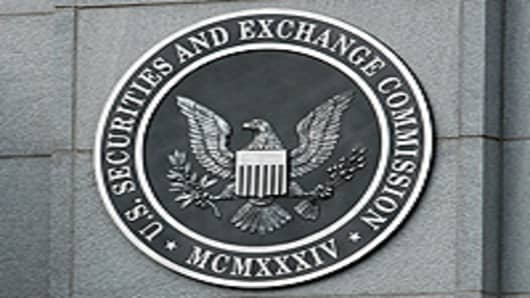Anyone who shorted stocks prior to the downgrade could have made a fortune because the market sank dramatically on the Monday following the downgrade. The Dow Jones Industrial Average lost 5.5 percent, a 634.76 point fall.
On the other hand, anyone who thought a lower credit rating would lead to higher interest rates would have been severely disappointed.
Bond yields dropped significantly following the downgrade—the opposite of what usually happens when a private company, a municipal debt issuer or even a sovereign debt issuer is downgraded.
Perhaps the oddest thing about the investigation is that everyone knew the downgrade was coming—so it's hard to see how this could count as "non-public information."
Two weeks before the downgrade was issued, I appeared on CNBC's The Kudlow Report immediately following David Beers, S&P's Global Head of Sovereign Ratings. It was pretty obvious from what Beers was saying that a downgrade was coming. Indeed, my segment was about the fallout of a downgrade.
All day long on Friday people were talking about a downgrade coming after the market closed. If it was supposed to be a secret, it was the worst-kept secret ever.
The evening of the downgrade, I was at the New York studio of Marketplace Radio. We taped one segment, then decided to hang around the studio until the downgrade happened so we could tape another segment.
The Wall Street Journal reportsthat weeks before the downgrade, S&P officials held private meetings with large bond investors. Some of those investors concluded the odds of a downgrade were better than they had previously thought. But anyone watching The Kudlow Report on July 26 could have come to exactly the same conclusion.
Even if S&P officials directly tipped off large bond investors about the downgrade, there's probably no violation of securities laws.
In general, trading on insider information is only illegal when it involves a breach of a fiduciary duty or other relationship of trust and confidence. If S&P authorized its officials to inform clients of its views, there's no violation of the law. In fact, this is exactly what investment banks do every day when they disclose their views on stocks or the economy in confidential memos issued only to their clients.
On a more technical, nerdy level, there's also the lack of connection to a "security" here.
Here's how the SEC describes insider trading: "Illegal insider trading refers generally to buying or selling a security, in breach of a fiduciary duty or other relationship of trust and confidence, while in possession of material, nonpublic information about the security."
Was information about the S&P's downgrade of the long-term credit rating "information about the security?" Almost certainly not. The only candidate for a security here would be U.S. Treasurys. But those rallied after the downgrade. Arguably, the informational content of the S&P's downgrade was zero when it comes to Treasurys . The broader context of "the stock market" cannot reasonably be construed as a "security."
It is possible the SEC suspects individuals at S&P leaked information about the downgrade in violation of S&P policies. This would be the strongest case for insider trading since privately benefiting or helping other privately benefiting from your employer's confidential information can be a violation of insider trading rules.
Questions? Comments? Email us atNetNet@cnbc.com
Follow John on Twitter @ twitter.com/Carney
Follow NetNet on Twitter @ twitter.com/CNBCnetnet
Facebook us @ www.facebook.com/NetNetCNBC



